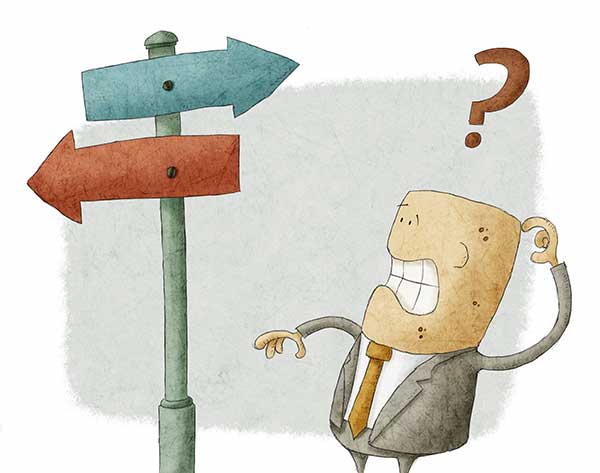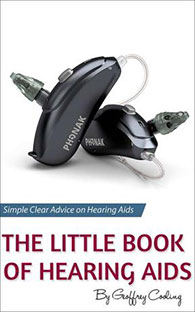Do I Need To Replace My Hearing Aids Every Five Years?
I am often asked this question both in the clinic and via hearing aid know. Many have read somewhere or have been told that hearing aids need to be replaced every five years. That isn't quite true, your hearing aids could keep doing their thing for ten years or more. However, there is always a, however, there is some validity to the five-year statement. So which is it, every five years or when they fall over?
Will it benefit you to upgrade your hearing aids every four to six years? Yes, it probably will. Will you have to upgrade your hearing aids every four to six years? No, you probably won't.
Every Five Years
When professionals talk about replacing hearing aids every four to five years they are actually talking about the cycle of technology change in the hearing aid world. While hearing aid brands introduce new technology on a two-yearly basis, those updates are incremental changes. The real jump in innovation tends to happen every four to five years.
Completely Different From What Went Before
In essence, the hearing aids that are produced at the end of the five-year cycle are dramatically different in efficacy and technology than what has gone before. They tend to be a real leap forward. For instance, if we take two hearing aid manufacturers as an example.
Widex and the Clear
The Clear platform which was released in 2009 was a massive leap forward in Widex technology. It introduced a completely new wireless communication system which was used to introduce a completely new way of processing sound.

Five years or so later, Widex introduced the Unique platform which was a radical departure for them. They had expanded the levels of sound they captured with the Dream platform, now they changed the way they dealt with different situations with the introduction of a new type of analysis and categorisation system. If you bought a set of Widex Clear hearing aids in 2012, is worth upgrading to the Unique? I would have to say Hell Yeah! If you bought a set of Widex Clear devices in 2012, are they useless and need to be changed, Hell No!

Confused About The Right Hearing Aid For You?

Our buying guide, easing the confusion with clear easy to understand info, we guarantee it will help you pick the right hearing aid for you.
Resound and the LiNX
Resound introduced their groundbreaking Made For iPhone hearing aids the LiNX several years ago. It was the first MFI hearing aid platform to hit the market and they were a real leap forward for Resound. In 2017, they released the latest LiNX platform the 3D. It is a remarkable leap forward for them with a completely new analysis and management system combined with a very clever directionality system which delivers natural sound and real benefits in noisy situations.
With their intermediary system the LiNX2 they improved battery life, expanded the platform to include custom MFI devices and they ensured the connection to the iPhone was more robust. If you bought a set of Resound LiNX hearing aids in 2012, is worth upgrading to the LiNX 3D? I would have to say Hell Yeah! If you bought a set of Resound LiNX devices in 2012, are they useless and need to be changed, Hell No!
Every hearing aid brand has gone through this cycle over the last few years. The hearing aids from every major hearing aid manufacturer are radically different today than they were five years ago. Does that mean you have to run out and buy them? No, it doesn't, however, they are better than what you are wearing, dramatically better.
When do Hearing Aids Die?
Again, a bit of a hard one, but generally speaking, you should expect to get between eight to ten years out of a set of hearing aids. After about eight years, it gets pretty hard to get them fixed if they fail. That doesn't mean they are going to fail, just that if they do, we might not be able to help.
The manufacturers have changed many things in their devices over the years including many of the components. As the devices get older, it doesn't make sense to keep manufacturing these components, so eventually, they run out of parts. When that happens, generally speaking, your hearing aid is knackered.
So, How Long Do Hearing Aids Last?
On average, modern hearing aids have an estimated lifespan of between five to eight years. Depending on the style of hearing aid, some may last longer. In-the-ear hearing aids tend to last around five years, while behind-the-ear hearing aids have a five to eight-year lifespan. As I said, aanything after that has to be viewed as a bonus.
I hope this clears up the five-year question, in finishing, will it benefit you to upgrade your hearing aids every four to six years? Yes, it probably will. Will you have to upgrade your hearing aids every four to six years? No, you probably won't. Any questions, get in touch.
If you like what you see, share it so others can benefit
Posted by Geoff

Geoffrey Cooling





Geoffrey (Geoff, anything else makes him nervous) Cooling is an Irish hearing aid blogger and has been involved with the hearing aid industry for over ten years. He has worked in private practice dispensing hearing aids and as a manufacturer's rep. He has written two books and they are both available on Amazon. He loves technology, passing on knowledge and is legendary for many other things, primarily the amount he curses, his dry and mischievous sense of humour and his complete intolerance of people who are full of themselves. Please feel free to connect with him
Looking For the Latest Hearing Aids or A Hearing Test?
Arrange a consultation with a trusted Independent hearing healthcare professional in your area



